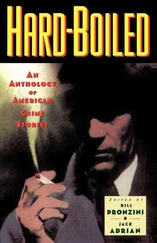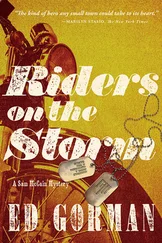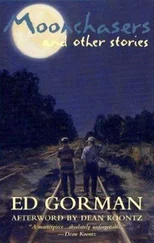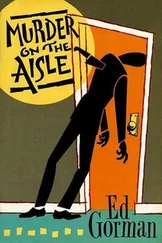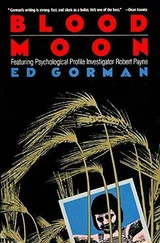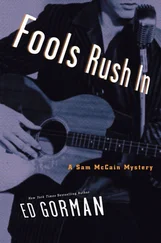“No, thanks.”
Cup and saucer in my hand, my weight sinking into the luxury of the leather chair, I sat back and gawked around.
“This was the senator’s favorite room.”
“I’ll bet.”
“The rolltop desk over there came from one of Jack Kennedy’s homes. The senator worked in the White House when President Kennedy was in office. I don’t think he ever got over what happened that day in Dallas. Mrs. Cooper has told me that he still had nightmares about it right up to the time of his own death. He was very proud that he was able to get that desk.”
“I’m sure he was.”
“I never knew Senator Cooper, of course; I only came here after he died to help sort through his papers. Then Mrs. Cooper asked me to stay on, and it’s been quite interesting. After my own husband died, I thought my life was over. But working here — well, as I say, it’s quite interesting.”
I wondered how much she knew about any of it. If you want to know the skinny on a hospital, ask a nurse; if you want to know the secrets of a corporation, ask the executive secretary; if you want to know anything about a sociopathic former starlet, do you talk to her factotum?
“Have you seen Susan today?”
I liked the way she handled it: “Now please, Mr. Conrad, you don’t expect to get me in the middle of all this, do you?”
“I thought I’d give it a try.” I liked her smile and I liked her.
“You know what a spear carrier is in theater?”
“Sure.”
“That’s what I am in this household. I deliver messages. I don’t interpret them and I don’t enhance them in any way. I like it here because it’s interesting and because I have a very nice room on the third floor. I don’t want to leave.”
“So you can’t be bribed?”
“Not unless you’re willing to pay for all seven of my grandchildren’s college educations.” The blue eyes held intelligent amusement. “Now, why don’t I go and see if Natalie’s busy?”
I always look over the books in libraries, private or public. There was one section that was essentially Americana. The novels ran to Sherwood Anderson, John Dos Passos, Ernest Hemingway, Willa Cather, F. Scott Fitzgerald — novelists he might have read when he was in college back in the fifties. There was also a good deal of nonfiction, notably books by Saul Alinsky, the Chicago man who taught poor people how to organize and challenge those who held them down. He was a true champion of the downtrodden. His life was threatened many times by those who claimed he was a communist, but he continued on anyway. His books inspired millions of young people. I took down a copy of Reveille for Radicals and turned back the cover.
For my favorite wild-eyed radical
From his loving wife Patricia
They’d been married twenty years before her heart finally gave out. From all I’d read about the couple Patricia was as progressive as her husband. She’d been a sociology student at Alinsky’s alma mater, the University of Chicago, and had met her husband when they’d both been marching to protest a particularly usurious loan company that exploited poor blacks. She’d come from money and prominence but had betrayed her class, as it was often put in those days. She’d worked hard to get her husband elected, first to the House and then to the Senate. The Washington gentry hadn’t liked her. Too liberal. But then, so was her husband.
Then she died, and after two years of loneliness he met Natalie, and while she hadn’t changed him radically at first, he soon enough became unrecognizable to his old friends. He became interested in becoming wealthy, and if you can’t become wealthy holding a Senate seat, then you are incompetent beyond repair. I believe the term is “license to steal” and that applies to both sides. Natalie was his unindicted co-conspirator. She was the darling of the lobbyists; she understood how secret deals were made to fill the coffers. I tried to imagine Natalie reading Saul Alinsky. I couldn’t help myself. I laughed out loud.
“Do you talk to yourself, too?” Natalie had come in.
As I put the book back on the shelf, I said, “Yes, I do, and I find myself pretty damned interesting.”
“I checked with Ben. That one radio interview still hasn’t been rescheduled. You’re supposed to do what I tell you to.”
I turned to her and said, “Supposedly you hired us because we know more about campaigning than you do.”
“We’ll see how you feel when I stop payment on the very large check Winnie mailed to your firm today.”
By now she was inside the room. At first she’d been addressing me from the doorway as if getting closer might cause her to be ill. She wore silver lamé lounging pajamas — trashy chic. She carried a martini in her left hand and a good deal of malice in her eyes. “I want you to leave.”
Why waste time? “How much did Monica Davies want from you to keep quiet about Susan?”
You could never quite forget that she was an actress, not a great one but one who understood some of the basic skills of the craft. And this she did well — rolled her eyes and smiled. “Oh, God, you’re really going to try and bail yourself out with this kind of bullshit?”
“Larson told me it was a lot of money.”
I had the pleasure of watching the word “Larson” have the effect of a bullet between the eyes. “What the hell are you talking about?” The acting wasn’t so good this time.
“He doesn’t want his firm to be associated with blackmail. And I don’t blame him. So before the story breaks he wants to know what’s going on. And so do I.”
She walked past me, headed for the fireplace. At any other time I would assume that she wanted me to admire her body in the silver lamé pajamas. This time she was just stalling. We were well past the point where she’d ever care about me finding her seductive.
When she reached the chairs in front of the fireplace, she said, not turning around, “You may as well sit down.”
“I’ll stand.”
She finished her martini and walked halfway back to me. Her years showed now, and they were cruel years. Winnie was so much more appealing than she’d ever be. Natalie wouldn’t be able to fathom how that would be possible.
“I did it for Susan’s sake.”
“That’s a lie. You did it so there’d be a Cooper in the House and eventually in the Senate. You did it for yourself, not for Susan.”
“I’ve done a whole lot of things for Susan, and the bitch will never be grateful for them. I tried very hard to be her friend. I knew I’d always be her stepmother and nothing more. But some stepmothers and their daughters get on very well. Not her. She wouldn’t have any of it. She hated me from the day I came into this house. You should have seen her at our wedding. She would barely speak to me. Everybody saw it. It was humiliating. She idealized her mother, that was the problem. Her mother was this grand lady who gave herself to helping the poor. And I was this slut — she actually called me that more than once. This slut. She said I was corrupting her father.”
She set her martini glass on a small table. She was performing, but at least the writing was getting better. “When I met John and saw all the opportunities he’d passed up, I wanted to help him. I’d been in Washington a few years by then and I knew a lot of people. He had this big house and this reputation as a reformer, but he didn’t have all that much money. And times were changing. He’d come into office when the liberals dominated. But then things turned around, got very conservative. Susan always says that I made him change his votes. Well, if I hadn’t, he never would have been elected for his last term — maybe not for his last two terms. And so he started traveling in conservative circles. We both did. We met a lot of different people. I’ll grant you they were people he wouldn’t have liked before, but he’d mellowed. And he became friendly with them.”
Читать дальше
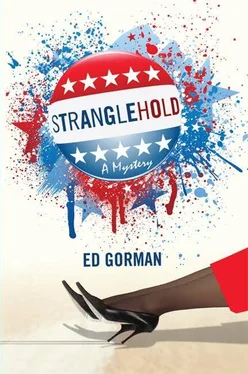


![Аманда Горман - The Hill We Climb [calibre]](/books/384311/amanda-gorman-the-hill-we-climb-calibre-thumb.webp)
